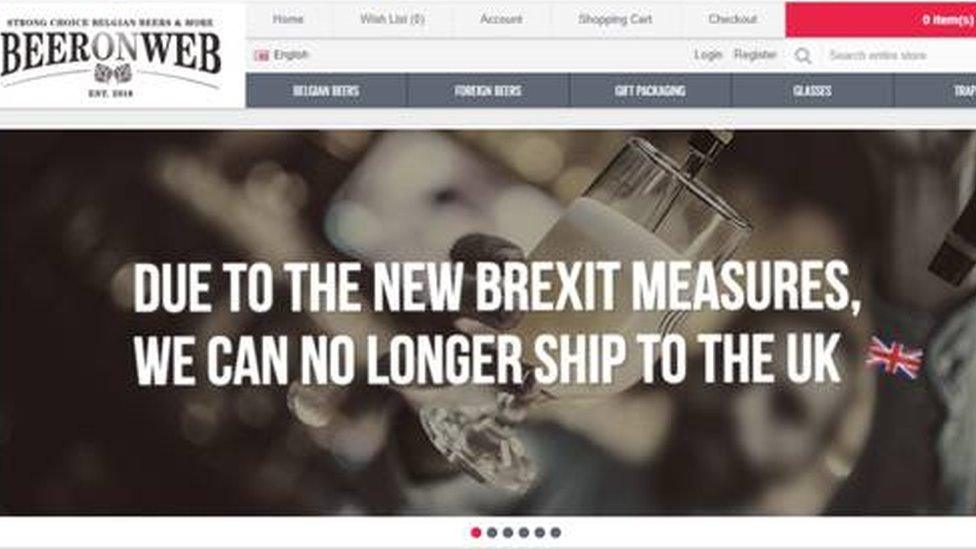Brexit one month on: Firms describe hold-up 'hell' and' teething problems'
- Published
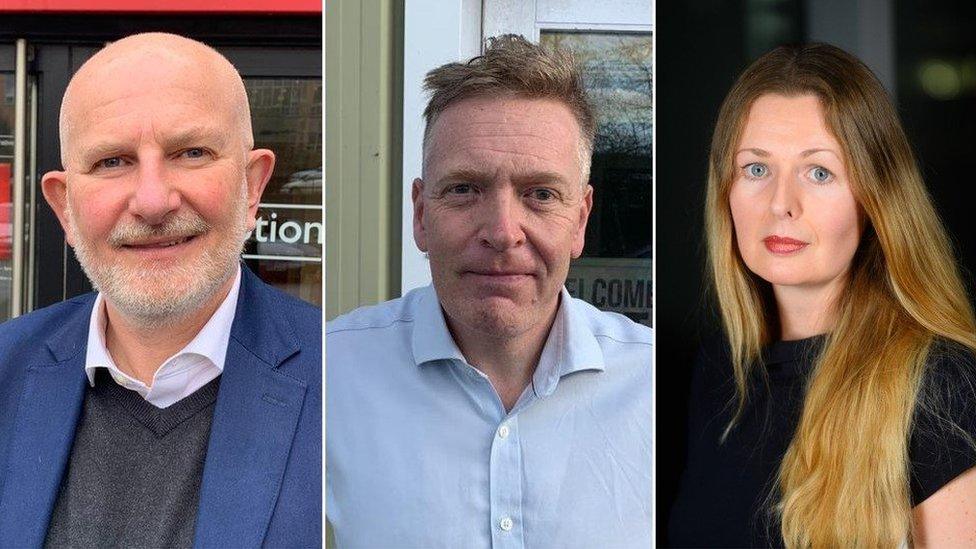
Three businesses with ties to the EU reflect on the first month of Brexit
It's been a month since the UK and the EU began trading under the terms of a new post-Brexit trade deal. The new arrangements mean changes for many businesses which deal with Europe - so how has the last month been for them, and how are they feeling about their futures?

'Doing things very differently'
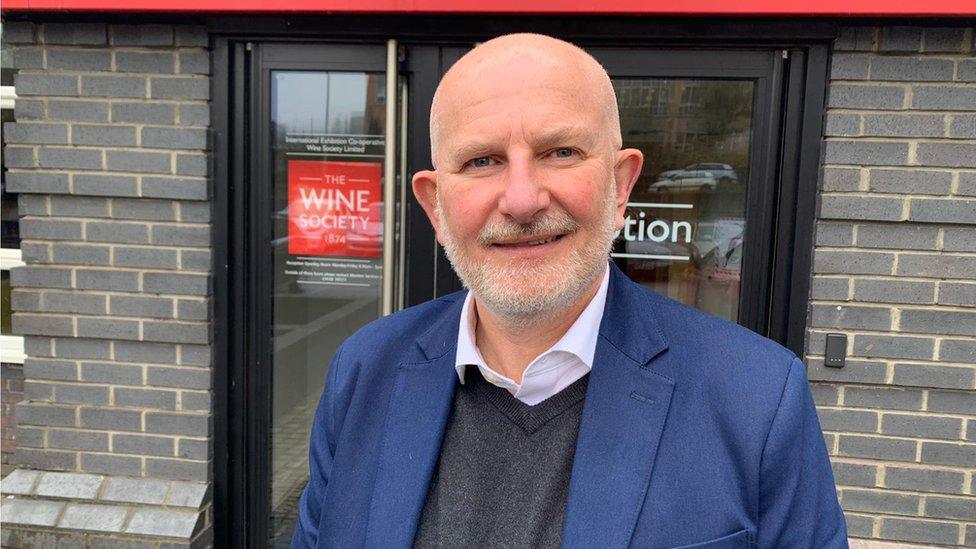
Steve Finlan said the freight providers have been able to help with a lot of new paperwork since Brexit
The Wine Society in Stevenage, Hertfordshire, imports 12 million bottles a year, of which 70% come from the EU.
That means hold-ups at the borders can have a big impact - though chief executive Steve Finlan says the the cooperative has worked hard to adapt.
The main problem, he says, is that the import process from the EU is "unpredictable".
"It's not business as usual - and therefore we're having to do things very differently. If one piece of paperwork is out of place, you've got to go through the whole process again," he says.
That paperwork, he explains, has to be completed by the vineyard, the freight company and The Wine Society - part of the increased "administrative burden" which has led to it changing some of its lead times on orders.
But Mr Finlan says the business - which turns over £125m a year and employs 220 staff - has spent "two years with our wine makers helping them get ready for these changes".
Though there have been delays, they were "not the repeat of Christmas", with long queues in Kent caused by coronavirus restrictions.
For the company, Brexit is "dwarfed by the things we having to do around the pandemic", he says.
"There is a likelihood your bottle of wine is going to be more expensive but it is too early to tell," he adds.

'Brexit is hell'
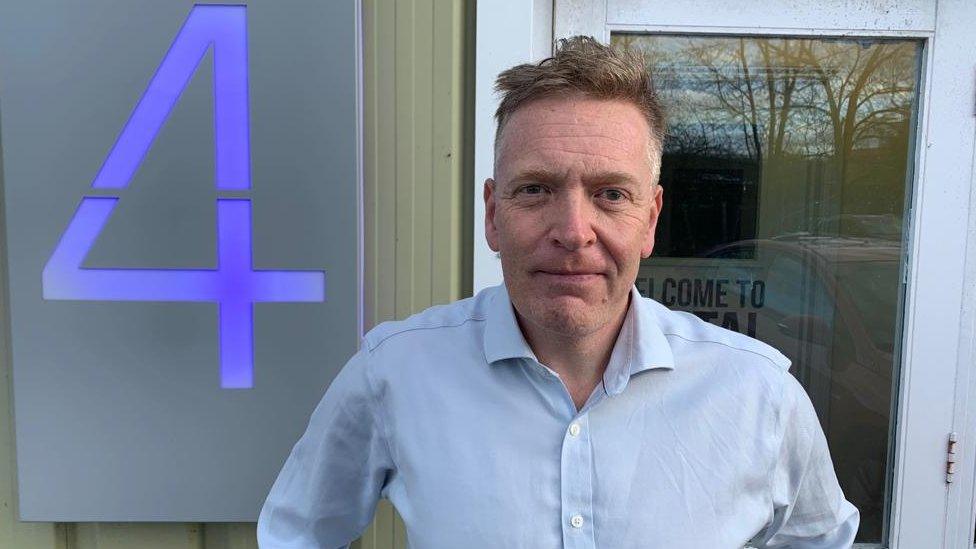
"The red tape is enormous" since Brexit, according to retail marketing company founder Andrew Moss
Andrew Moss, founder of Horizon Retail Marketing, says his European customers have given him an "ultimatum - to relocate to the EU or they'll look for another supplier".
The 37-strong company, based in Ely, Cambridgeshire, makes marketing materials for shops. Half of its £4m turnover comes from EU customers.
Mr Moss is now in the process of incorporating a business in Holland, which should be up and running in two weeks.
"There is no alternative, if we want to continue trading in Europe we've got to be in Europe," says Mr Moss.
As he sees it, "the race is on" to keep his EU trade.
His customers in the EU now have to pay UK VAT, which he says is "an enormous issue" costing an extra 20% which customers are "unwilling to pay or, in many cases, unable to pay".
He describes the last four weeks as "hell". Previously he could ship to Europe for the next day - it now takes three or four days or sometimes longer.
"We shipped to Italy on 4 January and it's still not cleared yet - our customers are going crazy," he says.

'Teething problems will be sorted'
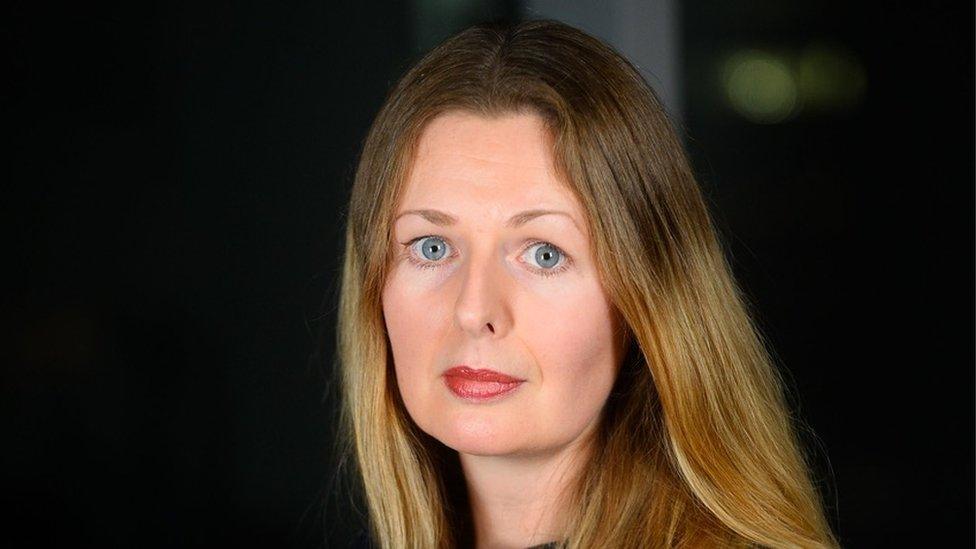
Export director Lucinda O'Reilly is confident trade with EU business will continue
Lucinda O'Reilly, from Ecotile Flooring in Luton, is more positive about the post-Brexit future.
She says: "Our transport company reckons [any problems] will be sorted out in the next two or three weeks, so by the end of February it should be business as usual."
The company produces flooring for factories and warehouses, with a £6.5m turnover and 30 employees.
Exports account for about 40% of their business and it sends 10 to 15 orders to the EU each week.
The export director says the company is encouraging distributors to make bulk orders to minimise additional costs, but there are still issues from Brexit.
"The amount of time it's taking us to do all the paperwork is very significant. Before [Brexit] dispatching an export order would take 20 minutes - now it can take two hours, sometimes two-and-a-half hours.
"Sometimes we've done all the paperwork and the next day our transport company comes back and says 'no we need this paperwork, or we are going through Belgium instead of Calais because it'll be quicker'."
This means staff are spending their time on paperwork rather than finding new distributors or dealing with enquiries from current customers, she says.
"It's been a challenge," Ms O'Reilly admits, but adds: "I do feel these are teething problems and they will be sorted."
She says EU customers have "stood by us" and the company has added a new distributor in the Netherlands in the last two weeks.
"People in Europe still want to buy from us - they're prepared to ride out these temporary challenges. I think it'll be fine in the long run."

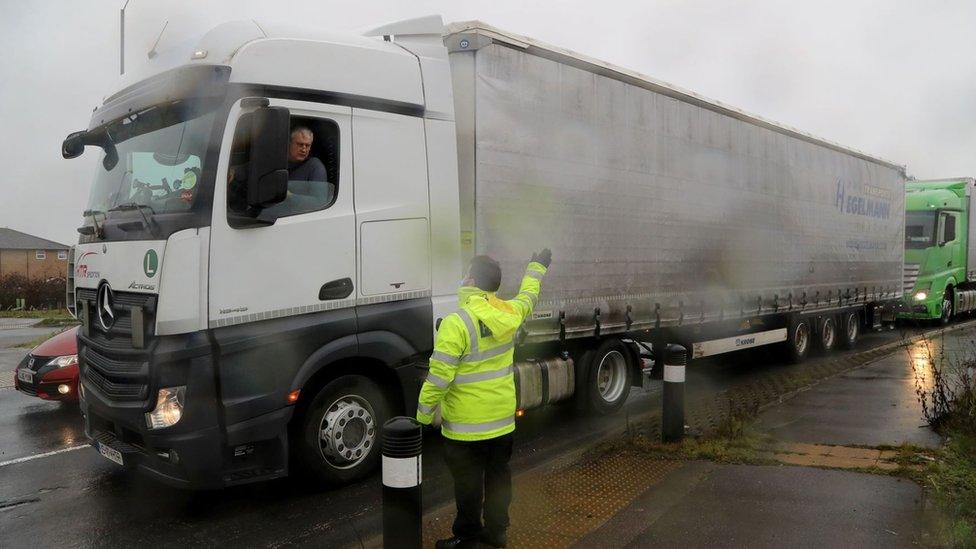
Business groups are working with the government on any import and export issues, Michael Gove says
The government says it is "committed" to helping companies adjust to new trading rules with the EU.
Cabinet Office Minister Michael Gove has acknowledged "some businesses are facing challenges with specific aspects" of the new trading relationship, but says the government has set up export helplines, and "invested millions in the customs intermediaries market".
Mr Gove says he is working with business groups to provide any "tailored support to tackle any outstanding issues".

Find BBC News: East of England on Facebook, external, Instagram, external and Twitter, external. If you have a story suggestion email eastofenglandnews@bbc.co.uk, external
- Published1 February 2021
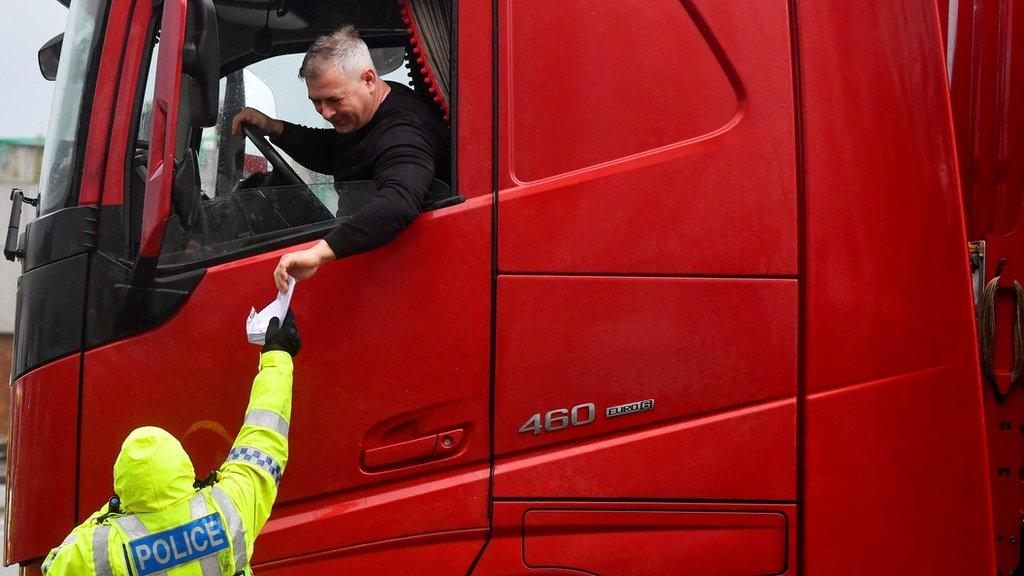
- Published21 January 2021

- Published4 January 2021
